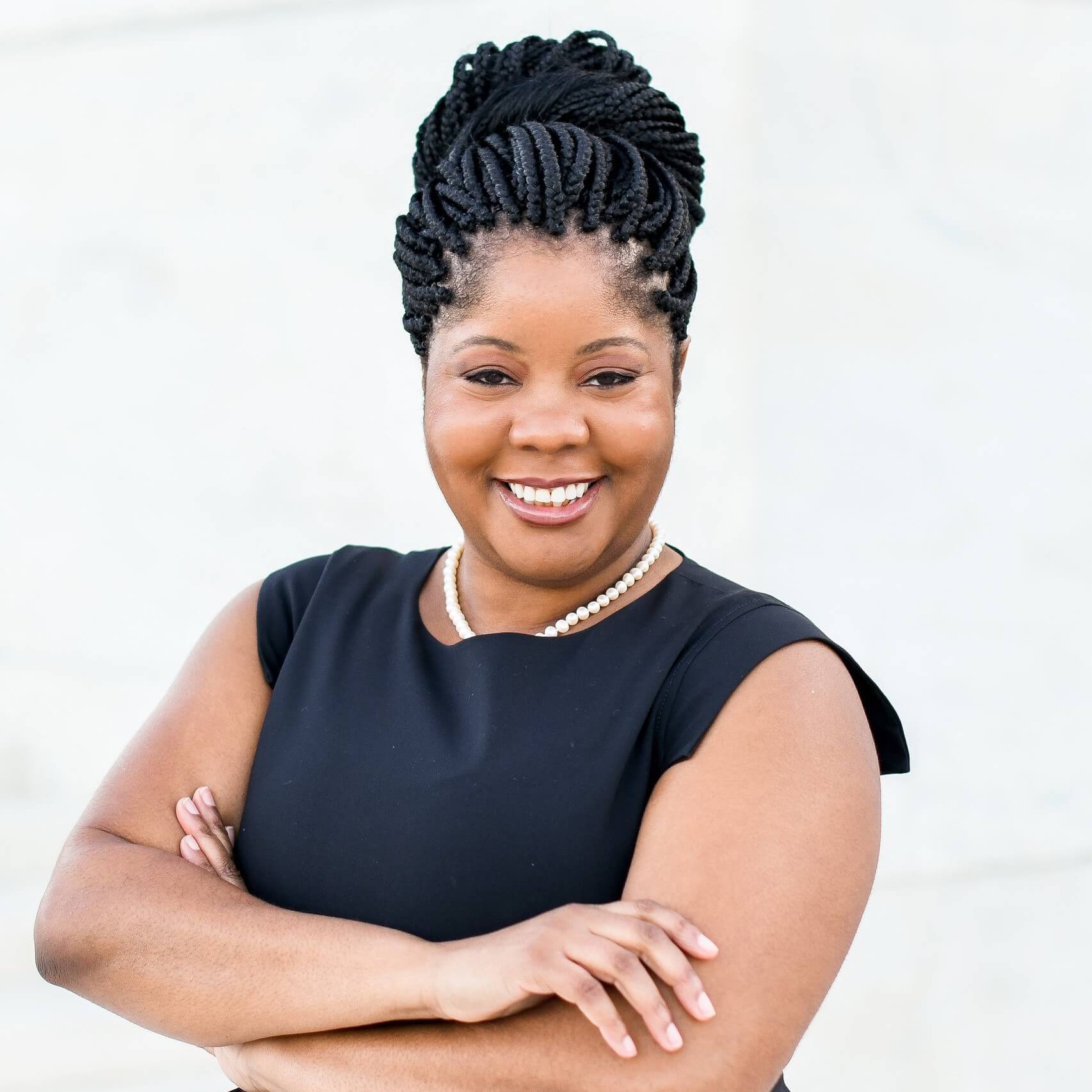
With the new Trump administration in office, reproductive rights, including access to abortion, will continue to face ongoing threats nationwide, a leader of a national organization addressing the issue warned in an exclusive interview with BDO.
The federal government will now likely push a conservative agenda, which makes supporting state lawmakers who fight for access to reproductive health services more important than ever, said Jennifer Driver, senior director of reproductive rights at the State Innovation Exchange.
Black women are particularly vulnerable to the challenges posed by new federal policies that could reshape health care and trigger state-level actions to undermine reproductive justice, Driver said.
She leads the Reproductive Freedom Leadership Council — the nation’s only cross-state network of state legislators focused on reproductive health, rights, and justice. The RFLC empowers the next generation of progressive lawmakers by providing legislative tools, mentorship, funding, and networking opportunities.
Driver is passionate about the council’s mission and knows firsthand how state policies have led to inequities in the health care system and other institutions in the United States.
“I’ve worked in reproductive rights for over 15 years. Growing up in Alabama, I saw the impact of state policy failures and disenfranchisement – from convict leasing, to closing DMV offices in Black communities and erecting extreme barriers to the political process, to severely underfunding health care services largely used by Black and brown communities,” she said.
“After my own negative experience with the health care system in Alabama, I became more determined to do something about the policy choices that negatively affect a person’s health.”
Driver had an extensive discussion with BDO about her organization’s ongoing fight to protect reproductive rights, the role of state legislatures in health policies, and the need for Black communities to mobilize against harmful legislation.
Will the role of state legislatures evolve in the fight for reproductive rights, especially with the upcoming political changes? Or do lawmakers plan to continue the same game plan?
“States have been, and will continue to be, the frontlines in the fight to protect and expand reproductive freedom. I work with state legislators every day, and I know firsthand the incredible power they have to shape our lives and our freedoms. I also witnessed the threats that occur when we solely focus on the federal elections. The extremist agenda of Project 2025 has been in the states for decades—we’ve seen these policies devastate abortion care, gender-affirming care, DEI programs, and so much more across the country. These threats didn’t happen overnight. The architects have been laying the foundation that has allowed for the conditions we see today. Six has always known that the fight is in the states, and our decades of work building up state legislatures has given us insight into how we move forward, build progressive power, and reject the push toward authoritarianism. In the face of a Trump presidency and continued attacks on reproductive freedom, our strategy may look a bit different, but our fight is the same.”
At BDO, we want to keep our audience informed about reproductive rights under the Trump administration. What do you think the Black community needs to know right now?
“As scary as this moment is, I can’t help but think it feels eerily familiar. Our community has been disenfranchised in this country for centuries. And yet, we’ve always found a way to make a way and make the provision we need to survive. But that is a low bar and we cannot rest as the government and health policies continue to fail our communities. We’ve always known what this country is capable of when it comes to systemic injustice, and our community, especially Black women, has long been on the frontlines defending reproductive freedom and democracy itself. I think it’s important to put ourselves first—whether that means resting, making our voices heard, or somewhere in between. There is value to staying informed, as we are able, and getting information from trusted sources, since our community is likely to be the most affected by the policies of the incoming administration. I encourage us, as a community, to show up for ourselves and each other. I think it’s important to name that our only threat is not Trump and his administration. Absolutely, the foundation has been laid for him to enact generational harms. And also, our rights are being gutted by the courts, whether the Supreme Court or district courts, in gerrymandered statehouses across the country and it’s imperative that we not solely focus on the disasters that will come at the federal level. I encourage all of us to know what’s happening locally and in states, connect with organizations that are advancing reproductive justice and continue to advocate for the healthy and stable communities we deserve.”
Can you share some of the key strategies that RFLC members are using to defend and expand reproductive rights at the state level?
“State lawmakers can and should be the loudest advocates for change, whether they’re leading, working in coalitions, or moving quickly and nimbly to protect our communities. There are many strategies they can use to defend and expand reproductive rights. The first one is allocating dedicated funding to increase abortion access and eliminating funding to organizations that provide confusing, mis/disinformation to deter people seeking abortions. Financial and logistical hurdles are the largest barriers for people accessing abortion. That’s why abortion funds are so critical—they help people access these services. But at the same time, abortion funds can’t be the cure-all for abortion access. States can and should allocate funding to increase access.
Another strategy that state legislatures can use is repealing existing restrictions—in other words, getting rid of things like gestational limits and removing the physicians-only requirements. For example, we have decades of evidence showing that non-physicians, such as certified midwives or nurse practitioners, can safely provide abortions. Maryland passed a law in 2022 doing just that, expanding the pool of abortion providers, and they allocated $3.5 million annually in the state budget for abortion training.
But while we need access to abortion, we also need the full realities of reproductive justice: The framework developed by 12 Black women grounded in the right to decide not to parent, the right to parent, and the right to parent in healthy and stable communities. This means investing in ensuring all of the ways people need to thrive in communities, including safe and healthy schools, improving maternal health policies, removing the threats of surveillance of criminalization, ensuring paid family leave, representation in statehouses that ensure your lived experiences are reflected in policies, and so much more. These are all issues related to reproductive justice.”
What are some challenges that progressive lawmakers face in protecting abortion rights, and how is your organization supporting them?
“Well, I think we first have to look at the roots of state legislatures as institutions. They were created for wealthy, land-owning white men profiting from slavery. We still see the remnants of that today—state legislatures tend to be older, whiter, and more male. What people also don’t realize is that state lawmakers are often underpaid, or even unpaid—you can make anywhere between $18,000 to $41,000 a year. Some in New Mexico or New Hampshire make basically nothing, like $100 per session. So this makes it really challenging for progressive lawmakers, who tend to be younger, more diverse, and who may not have generational wealth. Unlike Congress, most state legislators have little to no staff or share staff between multiple offices. Where SiX comes in is we invest in these legislators. We give them tools, trainings, and a network they can lean on for support—especially crucial for lawmakers who are in the minority and already don’t have the resources of those who have legislative control. We often refer to ourselves as the “extra staff” that lawmakers and their teams can turn to for an added layer of support. We provide year-round guidance, hands-on assistance, and skills-building so they can succeed as empowered, effective, and tenacious leaders.”
How has the landscape of reproductive rights changed over the past decade, and what trends do you foresee in the near future?
“Over the past decade, we’ve seen enormous shifts in the reproductive rights landscape. Abortion access has been gutted across the country, with state bans, clinic closures, ob-gyns leaving ban states, etc. People with financial means travel thousands of miles to access basic health care. But one thing is clear to me: even before Roe fell, we were in an abortion access crisis. Roe was never enough. For years, Black communities and other communities of color, low-income people, and other marginalized groups have been systemically denied access to abortion care. Black women have been particularly affected due to racist policies that deny us access to care and continue centuries of systemic violence against our bodies and lives. It’s impossible to predict the future, but looking ahead, I want us to focus on reproductive justice. Reproductive justice—a term coined by Black women—is not just about abortion. It encompasses all of the ways that we need healthy and sustainable communities for us to thrive. Abortion intersects with so many issues—housing, mass incarceration, immigration, to name a few—and it’s critical for our movements to reflect that.”
Can you share a few examples of state legislators who have been championing legislation to protect abortion rights or improve such policies?
“I’m so incredibly proud of the work our RFLC members have done and continue to do to protect our rights. This question is difficult—there are far too many legislative champions to name here. Senator Natalie Murdock in North Carolina—she runs the Momnibus packages for Black maternal health, the abortion expansion packages, contraception access, menstrual equity, and comprehensive sex education. She sees how all of these issues intersect. In Tennessee, Senator London Lamar proposed a bill that would repeal all 19 state abortion restrictions. In Virginia, Delegate Mundon King is leading a bill that establishes the Commission on Women’s Health as a permanent, independently staffed commission in the legislative branch of state government for the purpose of studying and making recommendations on issues related to women’s and maternal health. The Commission consists of 15 members, five of whom are nonlegislative citizen members with significant experience or expertise in women’s or maternal health policy. State Senator Melissa Wintrow and State Representative Ilana Rubel were outspoken opponents of Idaho’s abortion ban, both in the state house and as it made its way to the Supreme Court. And in Louisiana, State Representative Mandie Landry has spoken out against the state’s law classifying medication abortion as a controlled substance, which will lead to delays in lifesaving miscarriage treatment. I’m so honored to have the chance to work with these legislators and the many more who I didn’t have time to name. You can see our full list of legislators here. On that note, I think it’s important for all of us to look at who our state legislators are—find out who represents you, where they stand, and let them know what issues are important to you. You know best what your community needs. Make sure they hear from you!”









